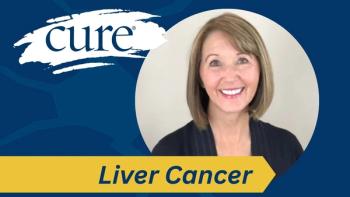
- Spring 2007
- Volume 6
- Issue 2
Web Exclusive: Can Liver Cancer Be Found Early?
While liver cancer is typically hard to diagnosis, and usually found in its later stages, there are ways to be proactive about screenings and know your risk.
Because signs and symptoms do not usually appear until the cancer is in its later stages, liver cancer is seldom diagnosed early. Small liver tumors are hard to detect by physical examination because most of the liver is covered by the right rib cage. By the time a tumor can be felt, it may already be quite large. But if a person is known to have cirrhosis, whatever the cause, most doctors recommend screening every six months with tests of alpha-fetoprotein and ultrasound. However, there are no studies showing that this will result in a higher cure rate.
Alpha-fetoprotein (AFP) is a protein that is normally present in high concentrations in the blood of fetuses but disappears shortly after birth. If it is found in the blood of adults it suggests they may have liver cancer. AFP is also found in certain other cancers, such as testicular and gestation trophoblastic neoplasms. It can be found in the blood of pregnant women if the placenta has become damaged.
Tests for AFP are used to look for early tumors in people at high risk for liver cancer. However, the AFP blood test is not recommended for routine screening for liver cancer in people at average risk because, unfortunately, there are potential problems with using it, including:
> Some tumors do not produce much of this protein. Often by the time AFP is elevated, the tumor is too large to be removed or it has spread outside the liver. Some noncancerous liver diseases can also raise AFP levels.
> In areas where hepatocellular cancer is very common, use of the AFP blood test for hepatocellular cancer screening has resulted in the detection of many tumors at an earlier stage. Still, many experts feel that AFP testing isn’t sensitive enough for people living in the United States and Europe, and recommend ultrasound (see below) as the main test, although the AFP level may also be measured.
> Many patients who develop liver cancer have long-standing cirrhosis (scar tissue formation due to liver cell damage). If a patient with cirrhosis gets worse for no apparent reason, doctors should suspect that liver cancer may be the cause and do appropriate tests.
Ultrasonography (ultrasound) is a test that uses sound waves and their echoes to produce a picture of internal organs or masses. A small instrument called a transducer emits sound waves and picks up the echoes as they bounce off the organs. The sound wave echoes are converted by a computer into an image that is displayed on a computer screen.
This is a very easy procedure. It uses no radiation which is why it is often used to look at developing fetuses. When you have an ultrasound examination, you simply lie on a table and a technician moves the transducer over the part of your body being examined.
Usually, the skin is first lubricated with oil. This test may be done before a biopsy to see if the lump is a cyst and is probably benign or is solid and more likely a tumor. This test is also used in people with certain hepatocellular cancer risk factors to help find cancers earlier. Many experts recommend that the test be done every six months. But no one knows for certain what the right screening interval should be.
Who should be screened? There are widely accepted rules. People infected with hepatitis B or C and who have cirrhosis is one group. Usually screening begins between the ages of 40 and 50. If a person has HIV infection, along with hepatitis B or C, the risk of cancer is higher and he or she should be screened. Another group is people with cirrhosis from other causes. In particular, if a person’s cirrhosis is so severe that he or she is waiting to receive a liver transplant, he or she should be screened. Otherwise a cancer may develop during the wait and become so advanced that it is incurable.
For more information on issues of cancer, visit the
Articles in this issue
almost 19 years ago
Message from the Editoralmost 19 years ago
Letters from Our Readersalmost 19 years ago
Surfer Wisdomalmost 19 years ago
Deadly Accuracyalmost 19 years ago
The Weight Gain Mysteryalmost 19 years ago
Hazardous to Your Heartalmost 19 years ago
What Five Years Really Meansalmost 19 years ago
Prescription for Troublealmost 19 years ago
Report Incites Controversy After Breast Cancer Decline Linked to HRT Usealmost 19 years ago
Liver Cancer: More Cases, More Causes



